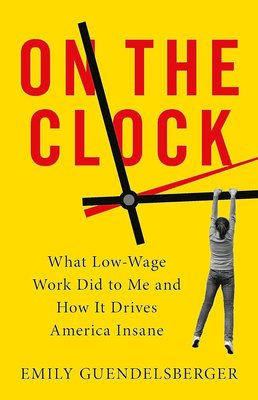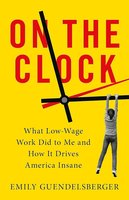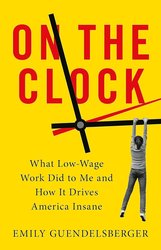" Nickel and Dimed for the Amazon age," (Salon) the bitingly funny, eye-opening story of finding work in the automated and time-starved world of hourly low-wage labor After the local newspaper where she worked as a reporter closed, Emily Guendelsberger took a pre-Christmas job at an Amazon fulfillment center outside Louisville, Kentucky. There, the vending machines were stocked with painkillers, and the staff turnover was dizzying. In the new year, she travelled to North Carolina to work at a call center, a place where even bathroom breaks were timed to the second. And finally, Guendelsberger was hired at a San Francisco McDonald's, narrowly escaping revenge-seeking customers who pelted her with condiments. Across three jobs, and in three different parts of the country, Guendelsberger directly took part in the revolution changing the U.S. workplace. Offering an up-close portrait of America's actual "essential workers," On the Clock examines the broken social safety net as well as an economy that has purposely had all the slack drained out and converted to profit. Until robots pack boxes, resolve billing issues, and make fast food, human beings supervised by AI will continue to get the job done. Guendelsberger shows us how workers went from being the most expensive element of production to the cheapest - and how low wage jobs have been remade to serve the ideals of efficiency, at the cost of humanity. On the Clock explores the lengths that half of Americans will go to in order to make a living, offering not only a better understanding of the modern workplace, but also surprising solutions to make work more humane for millions of Americans.






